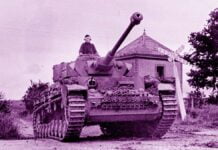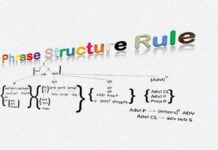General, Your Tank is a Powerful Vehicle is a poem by Bertolt Brecht, found in his Svendborg Poems collection, written while he was in Danish exile from Nazi Germany. The poem is also known as General, Your Tank and is part of Brecht’s larger body of work using poetry as a means of political commentary and social criticism. It’s important to note that Brecht was not just a playwright, but also a poet, and many of his poems reflect his political and social views.
In the poem, the speaker directly addresses the military General, praising the power and capabilities of his tank. However, the poem takes a sharp turn as the speaker points out the tank’s critical flaw: it needs a driver. In a series of rhetorical questions, the speaker highlights the human element behind the machine’s operation. The poem concludes with a stark reminder of man’s capacity for creation and destruction. The speaker points out that while man can fly and kill, he also possesses the unique ability to think. This final line implies that it is only through this critical faculty that humans can choose to utilise their power for good instead of succumbing to the barbarity of war. This poem presents Brecht’s concern for humanity. It is also an anti-war poem where the poet ironically presents the horror of war.

Summary
General, Your Tank is a Powerful Vehicle is a poem that criticises war and the military-industrial complex. In this poem, Brecht contrasts the destructive power of a tank, representing militaristic force and authority, with the constructive power of the written word, specifically books and poetry.
The poem is addressed to the Generals, and each stanza begins with the word General. The poet is the speaker, and the addressee is the General. It is in second-person narration, and it looks like the speaker is talking to the General in the present. The poet tells the General that his tank is a powerful vehicle that can smash down forests and crush hundreds of men. Though it is a powerful tank, it needs a human to drive.
The General’s bomber is also powerful. It, too, has a defect that needs a mechanic. Both powerful machines need a human to operate or make them powerful. The General has useful humans. They can fly and kill in the war, and they, too, have a defect that they can think. The machines’ defect is that they need a man to operate but are powerful. At the same time, humans’ defect is their ability to think maybe about the consequences of the war. Here, thinking becomes a defect as it may enable humans to avoid war by understanding its destructive nature.
The poem is ironic as it initially celebrates the two machines as powerful and later points out that they need humans to operate. Unless a human operates, they are just objects without any use. The writer tries to create an impression upon the readers by repeating certain terms. He believes that if humans know about their power, they can stop the horror caused by war. Through this poem, the poet tries to activate the defects of humans in a positive way to create a peaceful world.
Interpretation
General, Your Tank is a Powerful Vehicle can be interpreted on multiple levels. It can be seen as a commentary on the dehumanising nature of war and the reliance on technology for destruction. And it can be read as a call for individual responsibility and critical thinking in the face of powerful forces. Ultimately, the poem encourages readers to question the glorification of military power and consider the human cost of war.
Analysis
Brecht’s poem is a testament to his belief in the enduring power of knowledge and culture over brute force. He conveys a potent message through stark, simple, and direct language, making the work accessible to a wide audience, in line with his principles of Epic Theatre. The poem is lauded for its antifascist sentiment and advocacy of the idea that true strength lies not in the ability to destroy but in influencing, changing minds, and promoting progress.
This work demonstrates Brecht’s skill in using literature as a form of resistance, social commentary, and a call for intellectual engagement against oppressive regimes. “General, Your Tank is a Powerful Vehicle” remains powerful and relevant in contemporary discussions of political power, censorship, and the role of the arts in society. It encapsulates the struggle between force and thought, ultimately highlighting the victory of human spirit and intellect over seemingly unconquerable physical might.
Anti-war Message
Brecht was known for his anti-war sentiments, and this poem is a testament to his commitment to challenging the glorification of violence. The poem subtly undermines the glorification of military might by revealing the human cost of war machines. The tank may be powerful, but it ultimately relies on and becomes an extension of fallible human beings. The juxtaposition of the powerful tank with the critical questioning of its purpose serves as a strong anti-war statement.
Irony and Satire
The poem uses irony and satire to convey its message. While on the surface, the tank is praised for its strength; the underlying tone reveals the poet’s scepticism about the actual value of military power in achieving lasting peace and justice. The speaker’s initial praise of the tank’s destructive power gradually transforms into a critique of its dependence on human control. This ironic shift makes the poem powerful and thought-provoking.
Humanitarian Perspective
The poem aligns with a humanitarian perspective by questioning the effectiveness of military solutions. Brecht suggests that progress and positive change come from addressing the root causes of conflicts and working toward a more equitable and just society. The poem highlights the individual’s role in perpetuating or preventing violence by shifting the focus from the machine to the tanker. It prompts the reader to consider the moral consequences of utilising war machines.
Critical Reflection
Brecht encourages readers to critically reflect on the role of military power and the impact of war. By addressing the general directly, he prompts individuals to consider the purpose and consequences of military actions.
Relevance
The poem remains relevant in various historical and contemporary contexts, as it raises questions about the actual costs and benefits of military actions, making it a timeless piece of literature with a social and political message.
General, Your Tank is a Powerful Vehicle is a thought-provoking poem that challenges the conventional glorification of military power and encourages readers to contemplate the true impact of war on humanity. The poem’s direct address, straightforward phrasing, and use of repetition reinforce its message and make it accessible to a wide audience.






























